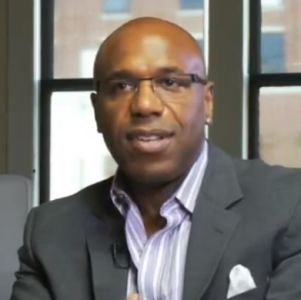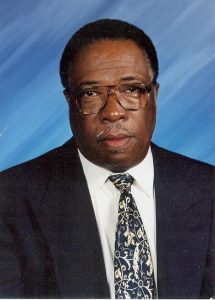
At the beginning of the 2003-2004 school year, my former school district invited Glenn Singleton to deliver a half-day seminar to all of the teachers in our district.
Yes, all. The entire district. This happened on the very first day of the school year.
I’ve mentioned Singleton at The College Fix here and there; our friends at EAGNews.org have gone into a bit more detail. He runs an outfit called the Pacific Educational Group that “teaches” white educators across the country about their supposed inherent racism, and how it is responsible for the black-white student achievement gap. (Notice the link to “What’s Wrong With White Teachers?” on the main page.)
In the early to mid-2000s, Singleton’s methods began to attract the attention of various educators.
The University of Alabama’s David Beito, a contributor to the libertarian-oriented Liberty and Power blog, wrote about Singleton’s “Courageous Conversation” program several times, describing a portion of “Conversations” as a Maoist-style scheme that “publicly humiliate[s] dissenters by having them wear signs around their necks expressing shame for their ‘incorrect thoughts.'”
(The program is trademarked “Courageous Conversation,” but Singleton uses the plural in his book as do school districts across the country.)
This was regarding an activity where educators would rate answers to various (race-based) questions, total up the numbers and wear that total around their necks, and then “line up from highest to lowest.”
Hans Bader, former attorney for the Department of Education’s Office for Civil Rights, once said about Singleton:
[…] the biggest losers in the long run from Singleton’s approach will be minority students, not the white teachers that Singleton scapegoats for poor performance by minority students. …
He also promotes stereotypes about minority children that could aggravate the minority achievement gap.
Singleton claims that “white talk” is “verbal,” “intellectual” and “task-oriented,” while “color commentary” is “emotional” and “personal.” See, e.g., Vincent Carroll, “On Point: The Whiteness Trap,” Rocky Mountain News, May 10, 2006, at page 34A. That’s exactly the sort of racist stereotype that contributes to the poor performance of some minority students, who believe that studying is “acting white.”
 Singleton’s program wasn’t criticized just by conservatives, either. Prof. Harry Brighouse of the University of Wisconsin-Madison had gone through “Courageous Conversations” and wrote about his experiences.
Singleton’s program wasn’t criticized just by conservatives, either. Prof. Harry Brighouse of the University of Wisconsin-Madison had gone through “Courageous Conversations” and wrote about his experiences.
A philosophical progressive, Brighouse’s take reflected that of UA’s Beito: “It’s a kind of involuntary therapy session—the kind of thing that my friends who used to be in obscure Maoist organizations report having gone through regularly.”
Brighouse’s piece begins with a link to a (now-defunct) old blog post of mine, as his circumstances had emulated my own.
I had started a personal blog at the end of 2003; in May of the following year I wrote about my experiences regarding Singleton’s agenda:
At this inservice, Mr. Singleton […]mr stated up front that he wasn’t going to discuss family structure, economics and peers. How convenient that is, especially since they are probably the biggest factors contributing to the “achievement gap” between majority and minority children in schools. His résumé states he is a “diversity expert.” What is that, exactly? How does one become such an expert? I wonder if Mr. Singleton has lived abroad in various countries to thoroughly examine different cultures? I’ve lived abroad in Latin America for quite some time; does this make me an “expert” on Hispanic culture?
MORE: ‘Raise Better White People’: The 18th White Privilege Conference in its own words
The conversations we had at our inservice seemed to be anything but courageous; indeed, most were typical and defensive. If a white educator inquired about the huge number of minority discipline referrals in schools, it couldn’t have been because those students are misbehaving in class. It had to be some “lack of understanding” between the [white] teacher and [minority] student. As a result, the “courageous” portion of the whole shebang became a sad joke as the program rapidly devolved into stereotypical politically correct dogma.
I continued, noting:
When Singleton spoke to my district last year, it was at the very beginning of the school year. Teachers are usually at their energetic best at this time, anxious to begin a new year. Instead, after Singleton’s “workshop,” our teachers (the vast majority of whom are white) were, as Brighouse notes, demoralized … and angry.
Around the time that Singleton addressed our district, another black educator had led a teacher inservice, this time at the school level.
William Jenkins had a more … balanced take regarding issues like the achievement gap. He said of course (white) teachers should always seek ways to better relate to their (black) students (any good teacher would know – and do – that, after all), but (uh oh!) – black students and their families need to be aware that, yes, most of their teachers will be white … and that they are there to help you.
I purchased one of Jenkins’ books – Understanding and Educating African American Children – and it is as balanced as his seminar.
After Jenkins’ appearance at our school (which was during the adoption of Singleton’s “Courageous Conversations” by our district), my then-principal felt he had an obligation at a subsequent faculty meeting to apologize for Jenkins’ inservice program. This elicited quite a few expressions of confusion and amazement among staff, so I asked: “Why are you apologizing?”
The answer perfectly encapsulates the contemporary politically correct approach too often taken by educators: That Jenkins did not offer any real solutions, and portions of what he said was insulting to (some black) staff.
When I followed up by asking why there is no apology for Singleton’s program, he seemed a tad confused, noting that Singleton’s program does offer solutions.
Let that sink in for a moment. A concept whose very premise that white educators are racist is somehow not insulting, and which explicitly states that those involved in the program should “expect and accept non-closure” (emphasis added), is somehow a “solution.”
Recently, I got in touch with Jenkins (at right) and asked him what he thought regarding the contrast between his approach and that of Singleton:
One of the problems we have in this country is that too many people (black and white) have stood by and watched black people and the country engage in futile exercises of stupidity in the name of improving the educational plight of black people. I refuse to go along with that crowd, which is why some of the black teachers at your school objected to some of my comments, and why the principal felt a need to apologize to them for those comments.
Many people in America, Black and White, are convinced that black people are inferior. Starting with the assumption of the inferiority of blacks, they have to put in place an explanation for their failure so they will not have to bare their inferior status to the world.
Interestingly enough, the black children in schools today, generally, are inferior; but not because of their color. They are inferior because they were believed to be inferior, then allowed to practice inferior ways (and protected in those ways by those who believed they were inferior) and in time the practicing of inferior ways condemned them to the inferior status they protest so much against.
Glenn Singleton, and many other black presenters, play into the notion of the inferiority of blacks and make these baseless presentations to whites who (many also believe blacks are inferior) want to avoid being labeled uncaring and racist, go along with the stupidity of these efforts without ever confronting the fact that they would never propose such programs for any other group of Americans, especially white Americans.
I also think black presenters like Singleton are aided by a feeling of guilt on the part of white people, and their genuine desire to help improve the plight of blacks, whether they feel they contributed to it or not. Teachers are generally, kind, caring, helpful people; so, we, like Christians, are vulnerable to crooks.
Singleton’s program is also accepted across the country because he is black and white people have a lower standard for the material and presenters that address issues, social and educational, that relate to black people. The shallowness of his thoughts, and their contradiction to every broader truth we know, should have been grounds for an apology to the faculty for taking up their time for such a presentation and paying for it with district money.
Jenkins concludes by saying:
We must be careful, as educators, and even educated people, [about] buying into the notion of black people being different because of their culture or color. People are shaped by their ideas and experiences, not the color of their skin.
In our efforts to work with black children, we must not let them, their parents, or presenters like Singleton, have us go against that which we know to be true about all life outside of black people.
Interestingly, four years after Singleton made his appearance (and while our district still was utilizing his “Courageous Conversations”), the same principal who had apologized for Jenkins revealed to me that Singleton had seen my critical blog posts at the time … and complained to district officials about them.
That doesn’t seem very courageous now, does it?
MORE: When stupid administrators fall for stupid edu-gimmicks and make stupid rules
MORE: Forced to attend a ‘white privilege’ workshop? Here’s an option
IMAGES: Kijkwijzer/Wikimedia Commons, YouTube, William Jenkins






Please join the conversation about our stories on Facebook, Twitter, Instagram, Reddit, MeWe, Rumble, Gab, Minds and Gettr.